How to See the Liberty Bell...in Queens
A copy of the famous American bell can be found inside a bank, which itself is modeled after Independence Hall!


The East Village’s Mayanoki is surely one of the smallest restaurants in New York City, at just eight seats. But the omakase sushi spot has a mighty mission: to serve either locally or sustainably sourced seafood (or both!). A traditional omakase will feature fish flown in daily from around the world – from the Tsukiji fish market in Tokyo, for example, and the consumer usually has little to no visibility into the type of fishing or farming a particular piece of seafood has gone through to get to the table.
But like any industry with a strong tradition, challenges to the sourcing and the craft can be hard to come by in the high-end sushi world. Mayanoki is one of the first to ask that question: Can omakase sushi be done differently, and specifically, more sustainably? As such, Mayanoki is the first all-sustainable sushi omakase in New York City, serving almost only domestic seafood. In fact, it’s the only sushi restaurant in New York City recognized by the Monterey Bay Aquarium Seafood Watch for sustainability.
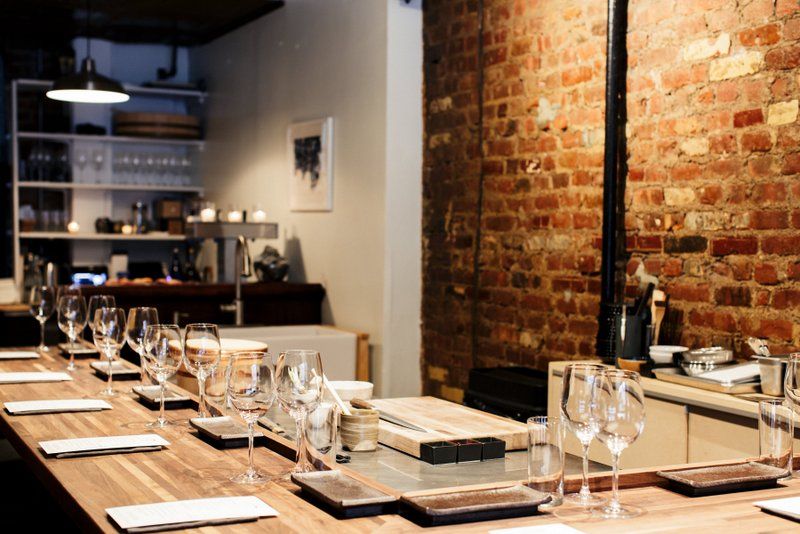
Photo by Nina Scholl courtesy Mayanoki
Mayanoki began as a pop up restaurant at Brooklyn Oenology run by David Torchiano and Josh Arak. TJ Provenzano, a partner at the Rooftop Reds vineyard in the Brooklyn Navy Yard, joined when the brick and mortar restaurant opened at 620 E. 6th Street, in a small sliver of the space at the restaurant Grape and Grain. (Grape and Grain was also recently re-opened under the management of Provenzano and his Rooftop Reds partner Devin Shomaker).
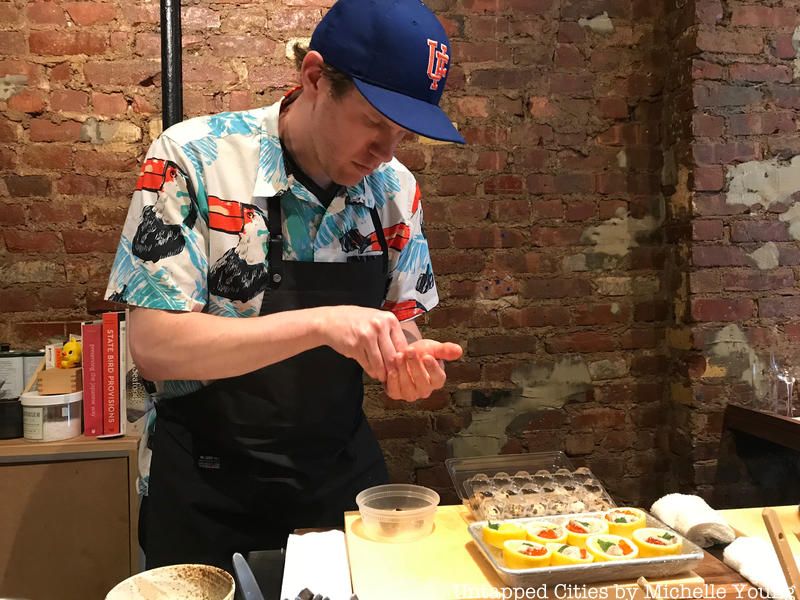
The first thing to know about Mayanoki is that unlike a traditional omakase, it’s not going to cost you an arm and a leg. A lunch omakase at the famous Karumazushi in Midtown for example can run over $200 per person easily, without drinks, and with fewer courses. Mayanoki is $95 per person, with about fifteen pieces of sushi served. You can pair the meal with local alcohol suggested by Provenzano and his wife, Briana Emerson, such as sake from Brooklyn Kura, the brewery in Brooklyn’s Industry City, wine from the Finger Lakes under the Rooftop Reds label or from Long Island, and apple cider from the Hudson Valley. All of the produce and accoutrement for the meal comes from the Union Square farmers market. They head to the local bodega for lemon and limes, as the restaurant is too small to mass source them. Jokingly, TJ says they have a “bodega ponzu” at Mayanoki.
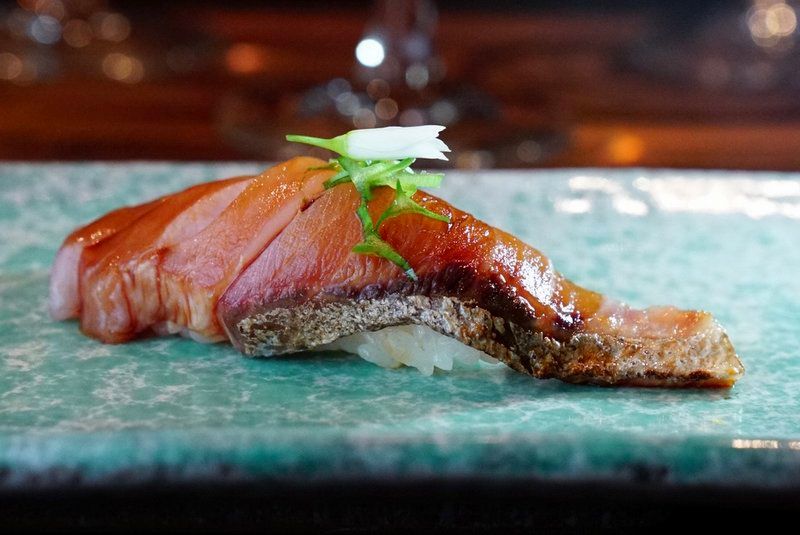
Photo by Nina Scholl courtesy Mayanoki
There are two seatings each night from Wednesday to Sunday and the menu changes (day to day, and even some pieces are different between seatings). Like a traditional omakase experience, you sit right in front of the sushi chef, Jeff Miller, and watch the dishes get prepared in front of you (you might even see a piece of shrimp get perfectly seared with a blow torch). You’ll experience fish not ordinarily used in sushi, something that requires a strong relationship with suppliers.
As TJ tells us, “Sourcing is by far the biggest challenge with an operation like this. Not only do we require the best and freshest local fish, but we also need it handled expertly as we are the only restaurant serving a lot of these species raw. For example, its easy to get your hands on local Bluefish, its not as easy to get your hands on the best handled, most beautiful Bluefish. Our chef Jeff Miller is constantly working with purveyors to find not only new and exciting sustainable species that have never been served with this kid of preparation before, but also the very best of the catch.” On a fun note, this will very likely be your only omakase experience with a sushi chef in a baseball cap.
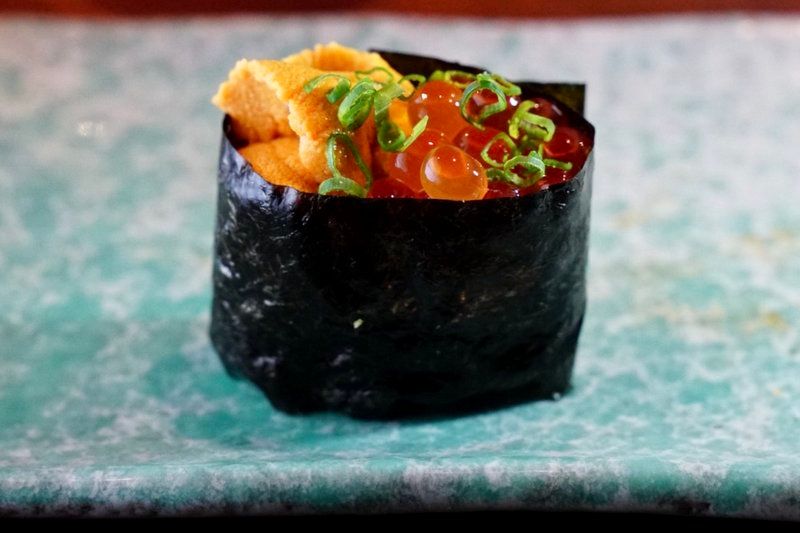
Photo by Nina Scholl courtesy Mayanoki
Some of the suppliers for Mayanoki include the Greenpoint Fish and Lobster, Blue Moon Fish (from Mattituck), and Wildfish Direct. One of the few international items on the menu is the artic char, which comes from a multi-tropic farm in Iceland. As TJ says, “We do feel that sustainable aquaculture is important to the overall health of not only the oceans but also of the sushi business…So we will work with farmed species occasionally if we feel its cultivated in a smart, sustainable way…. We feel that considering the environment and eating delicious sushi are no longer mutually exclusive.”
For fun, here is the menu our team had on our visit to Mayanoki:
1. Oyster (Farmed, Nova Scotia) in a Lemon (California) with Quail Egg (New Jersey) and Salmon Roe (Wild, Washington)
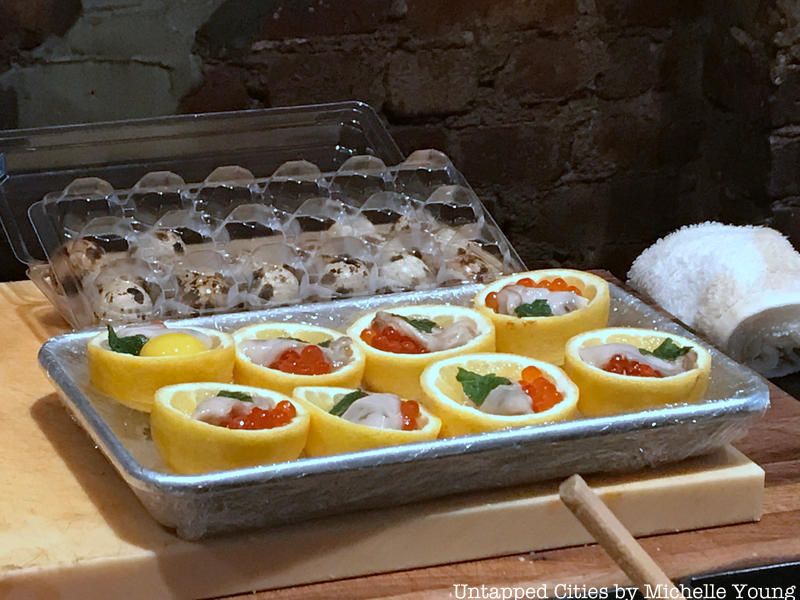
2. Fluke Sashimi
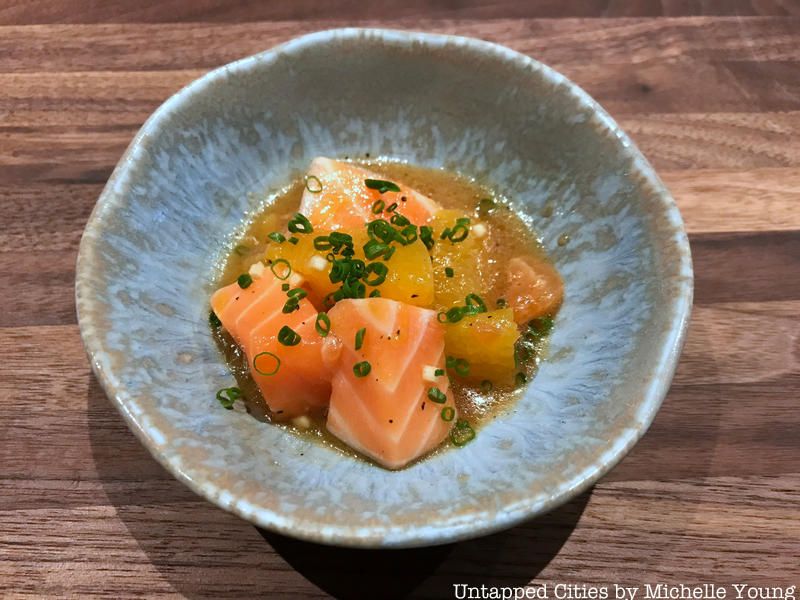
3. Porgy (Wild, Long Island)
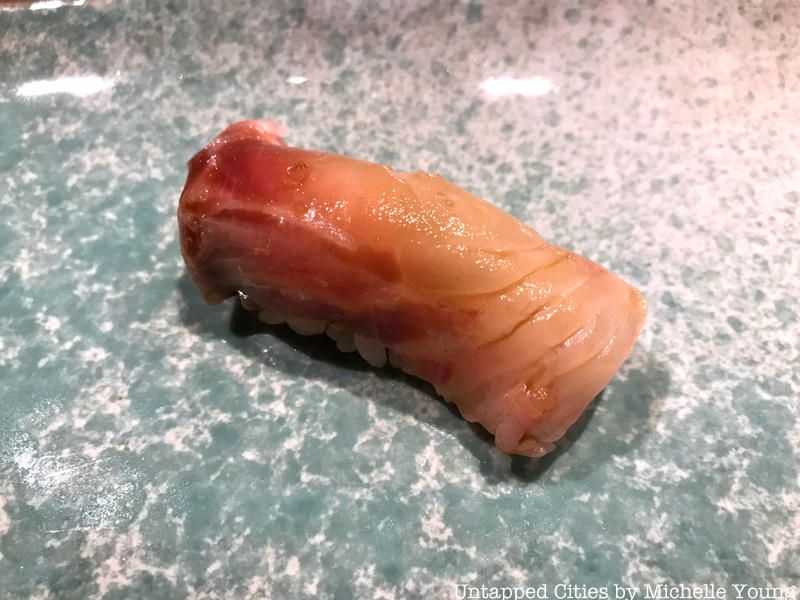
3. Almaco Jack (Farmed, Hawaii)
4. Scallop (Wild, Montauk)
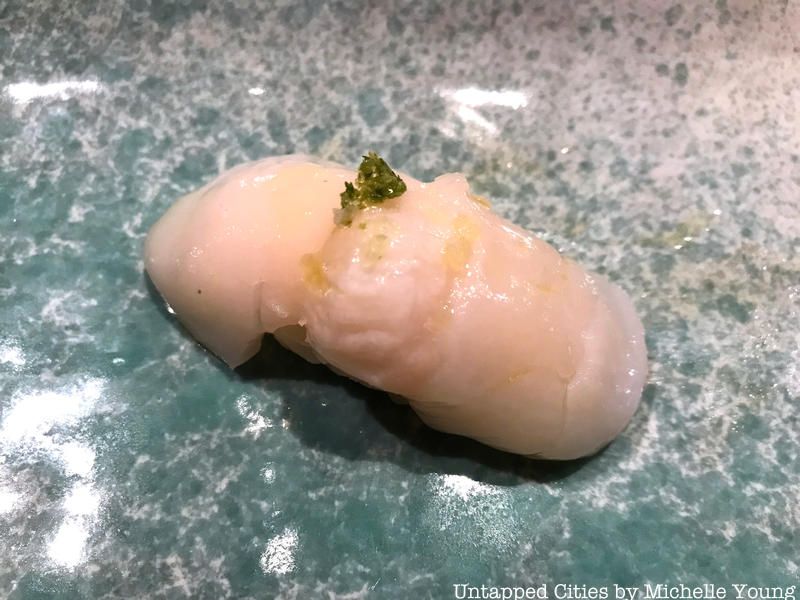
5. Smoked Char (Farmed, Iceland
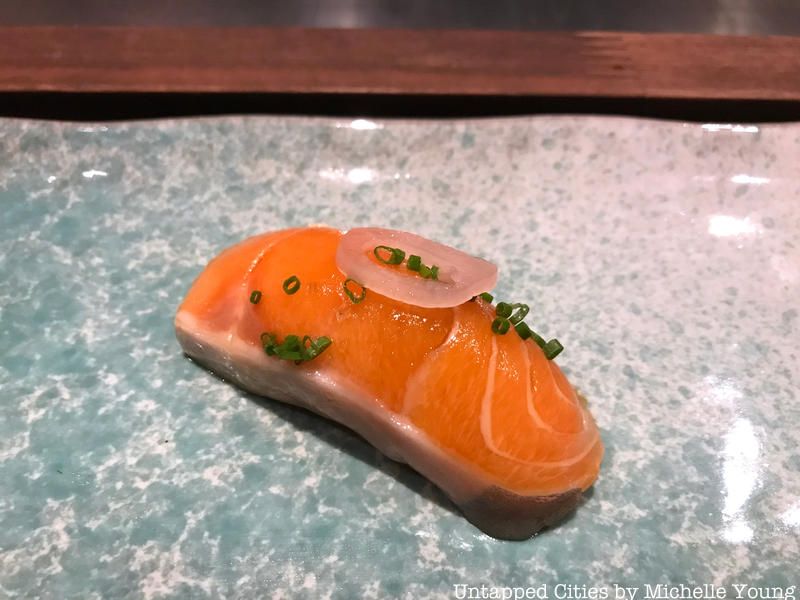
6. Vermillion Snapper (Wild, North Carolina)
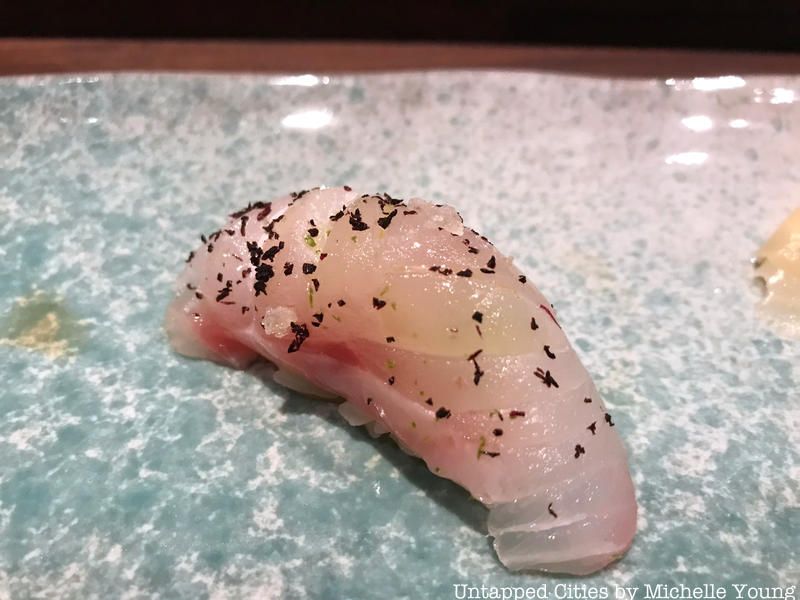
7. Shrimp (Farmed, Newburgh, New York)
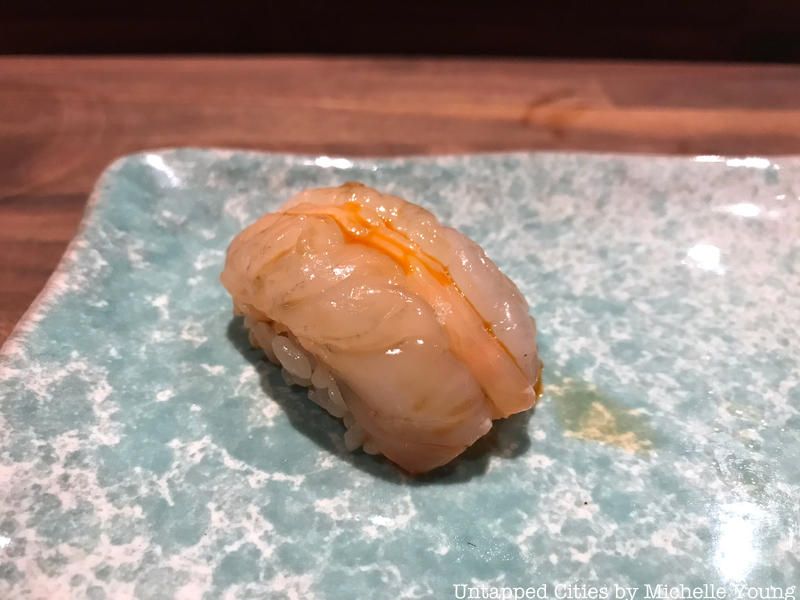
8. Fluke (Wild, Montauk)
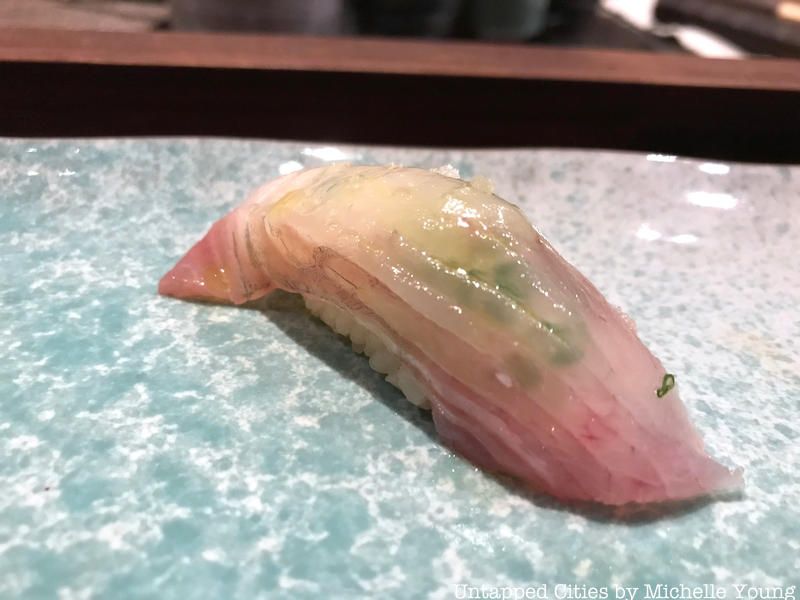
9. Bonito (Wild, Florida)
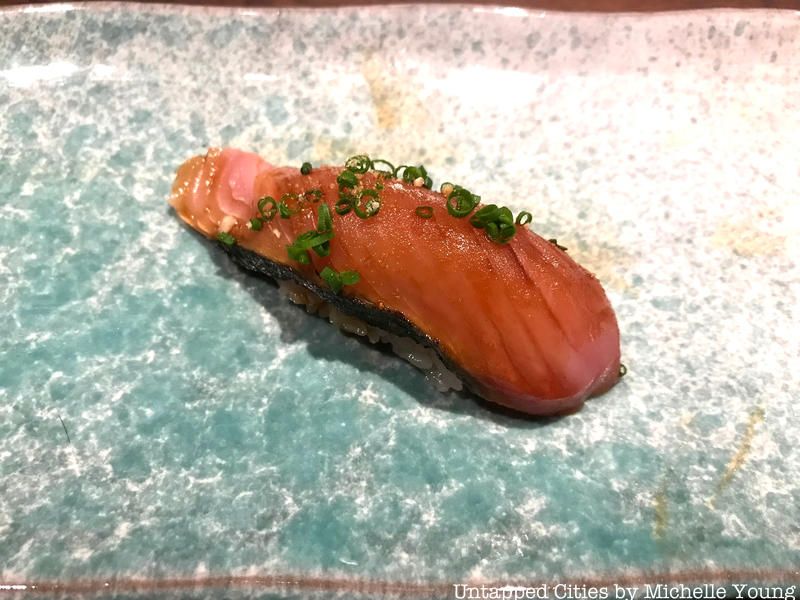
10. Grouper (Aged Ten Days, Wild, North Carolina)
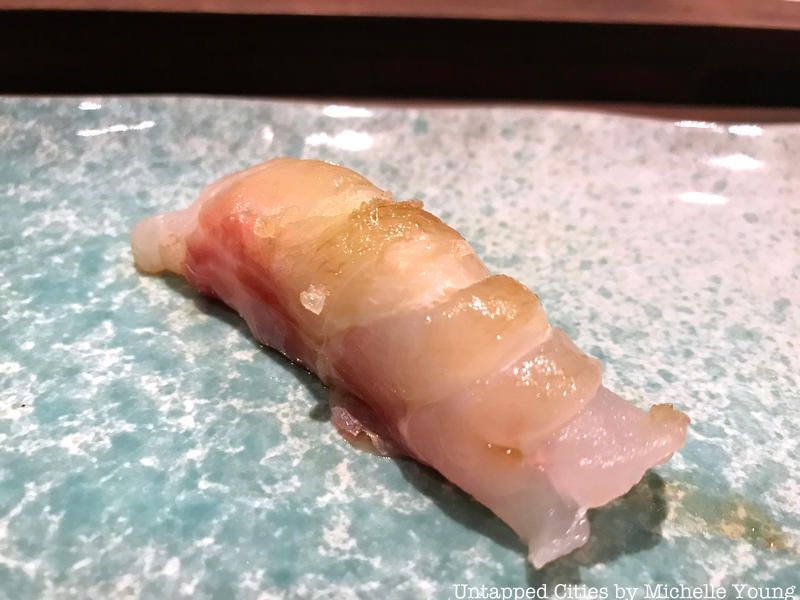
11. Uni (Wild, Nova Scotia
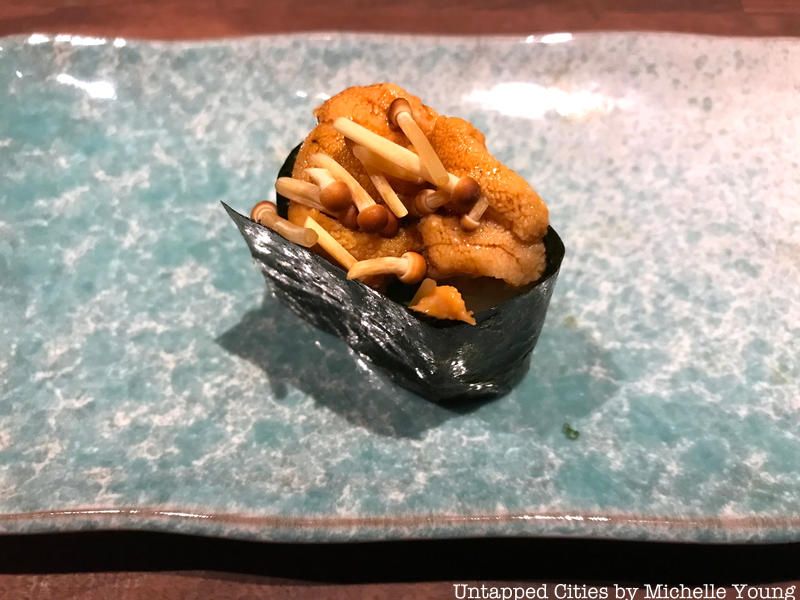
12. Triggerfish (Wild, North Carolina)
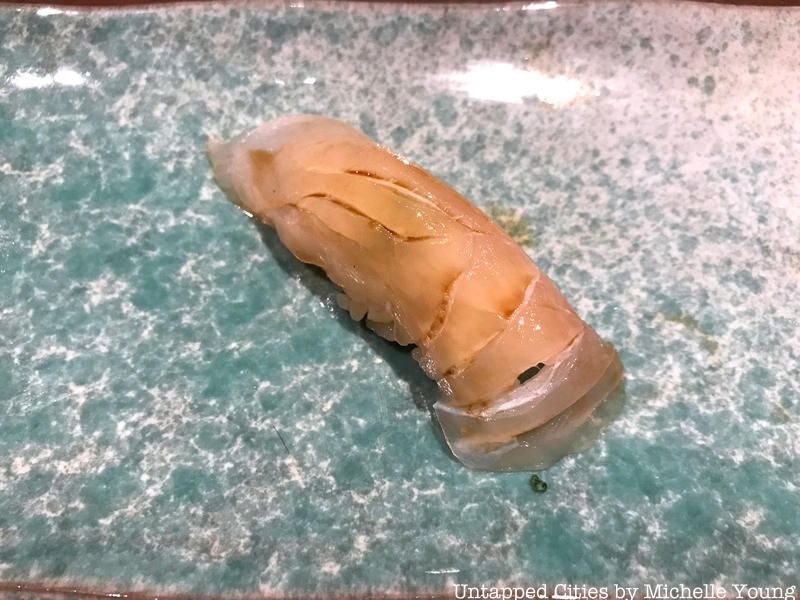
13. Smoked Jack Mushroom
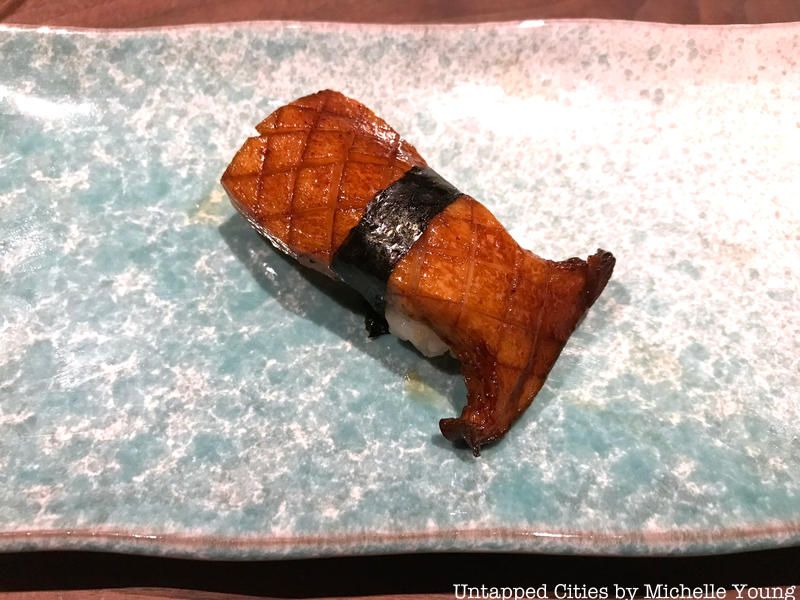
Mayanoki is reservation only and the seatings are at 6:30 PM and 8:30 PM on Wednesday through Sunday.Next, learn about the green roof atop the Javits Center, the second largest of its kind in the United States.
Subscribe to our newsletter